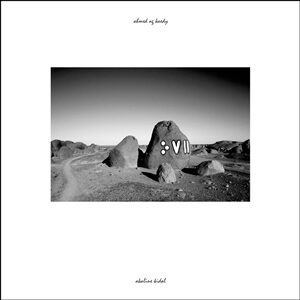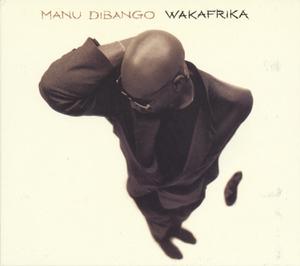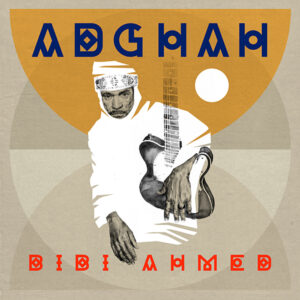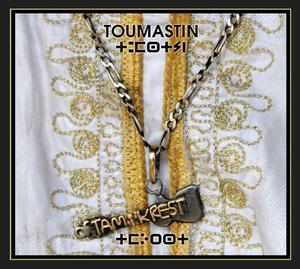
This product is currently sold out.
Don't worry! Enter your email and we'll notify you when it's available again.
Description
The Queen of the Ahoko
It makes sense that Antoinette Konan’s eponymous album features nothing more than her ahoko on the cover. The deceptively simple traditional percussion instrument transformed Ivory Coast’s Baoulé music scene when Konan deployed it against a roaring electrified backdrop of synth, bass guitar and drum machines. Released in 1986, the album is a veritable UFO of instrumental force and contemporary pop sensibility landing in a boiling pot of diverse, creative characters inhabiting Abidjan, Ivory Coast (Côte d’Ivoire).
Known as the “Queen of the Ahoko” among Ivorians, Konan single-handedly put the central-Ivorian instrument on the map when she gave it a 20th-century re-introduction. The three-piece wooden idiophone is handmade from a thin, ribbed, flexible stick, against which a smaller chunk of wood is rhythmically scraped. A hollow nutshell held in the non-scraping hand amplifies and manipulates the resulting overtones. Despite the ahoko’s diminutive appearance, Konan and her powerful voice have remained at the forefront of Ivorian music for decades now, in an extremely diverse country—approximately 70 indigenous languages—with a competitive, internationally-recognized music industry.
Music plays an important role in Baoulé cultural life, heard and seen in festivities, funerals and more. They are the largest ethnic group in Côte d’Ivoire and descend from Akan peoples who migrated from present-day central Ghana. Baoulé vocal music is characterized by polyphony, melodies built on parallel thirds and call-and-response. All of this can be heard in Konan’s music.
In 1976, she got her start with Ivory Coast’s National Television Orchestra (ORTI), backing major Ivorian stars on Podium, a program featuring youth culture hero Roger Fulgence Kassy. By 1980 she was playing in Musicaria, visionary Ivorian bandleader Boncana Maïga’s group. With Maïga, she expanded her creative horizons and learned new approaches. She also worked with influential producer Jimmy Hyacinthe’s band. His artistic agency in Treichville—Abidjan’s music industry epicenter at the time—further inspired Konan. She would hang out there after school.
Konan had a difficult time balancing school and music but enrolled in a music program at INA (National Institute of Arts, where she later also taught classes) and was able to both travel for concerts overseas and study music. Meanwhile, she managed to work with some of Abidjan’s key arrangers and music-makers.
Music manager Amedé Koko Tanoh, who was also involved in the agency where Konan socialized, provided the original impetus for her to learn the ahoko in 1981 as a way to distinguish herself from other artists. He took her to study with a professional ahoko player, an old woman who began to teach Konan. But she soon brushed the young lady off and wouldn’t teach her any more. Konan continued on her own until her mother asked where she got the instrument. It turned out her mother knew how to play also, so Konan began to study with her mom. She taped her mom’s ahoko playing so she could practice back at university.
During this early period, Konan borrowed clothes because she could not afford performance attire. Despite some ridicule she persevered. Music impresario George Tahi Benson, one of her key mentors, told her, “It’s good to dress the way you do. But what if you instead make the difference by promoting the local cloth, the Baoulé cloth.” She again got some negative feedback when she changed to traditional gowns. But it became her trademark look and gradually became trendy among Ivorians all over the country.
Konan’s fingerprints are all over Antoinette Konan, she says, as it was meant to be a highly personal recording. She wanted to portray the suffering, injustice, frustrations, humiliations, personal career struggles, experience of child birth and poverty she sees in society.
Taking on the producer role for the first time, Konan was the architect of her dancefloor-ready neo-traditional sound. But crucial to the recording was arranger Bamba Moussa Yang. A creative and versatile musical mind who was known for his work with legendary Ivorian singer Ernesto Djedje, Konan met him in 1986 after she had already released two albums. Yang brought a touch that matched Konan’s expectations, she says, because he knew her work so well. As she reflects on her long career today, Konan remembers Yang as her favorite arranger.
Over the years Konan’s popularity grew to the upper echelons of Ivorian society: Ivory Coast’s first president Felix Houphouet Boigny’s would regularly invite Konan to perform at official ceremonies with foreign dignitaries. Through her charity and advocacy work on behalf of female musicians, Konan is still a force in the country’s music community. You can see her performing or speaking on television and around the country all the time—yet she still maintains several entrepreneurial projects in the farming sector. Konan has recorded more than 15 albums so far and plans more recordings soon.
Tracks
01. Kokoloko Tani
02. M'ackô
03. Enfants Du Monde (Version Baoulé)
04. Abidjan Adja
05. Evignen
06. Yalé
Related products
-

KAEDY, AHMED AG Akaline Kidal
20,90 €
Includes 19% MwSt.plus shipping -

DIBANGO, MANU Wakafrika
30,00 €
Includes 19% MwSt.plus shipping -

V/A Ethiopian Wedding Songs
20,00 €
Includes 19% MwSt.plus shipping -

NOURA MINT SEYMALI Tzenni
21,90 €
Includes 19% MwSt.plus shipping -

BIBI AHMED Adghah
2,50 €
Includes 19% MwSt.plus shipping -

TAMIKREST Toumastin
18,90 €
Includes 19% MwSt.plus shipping